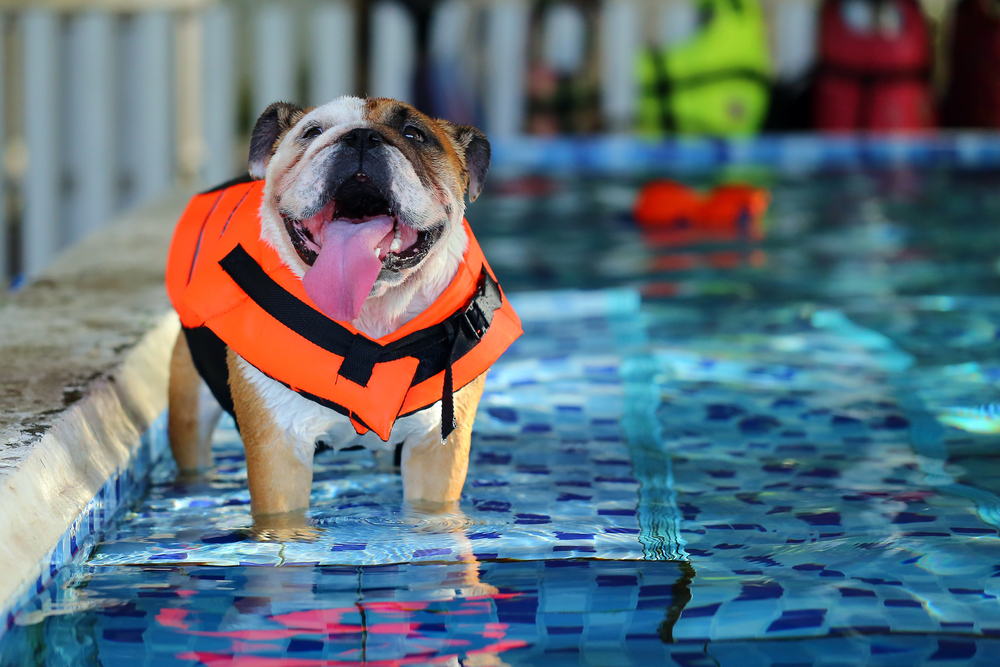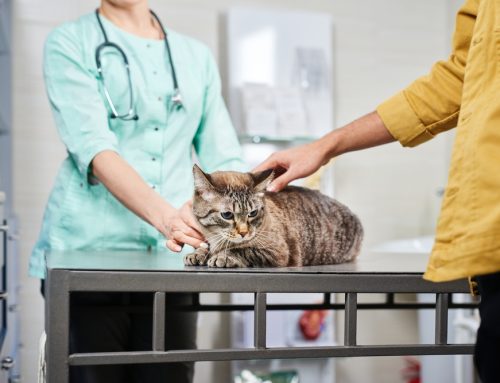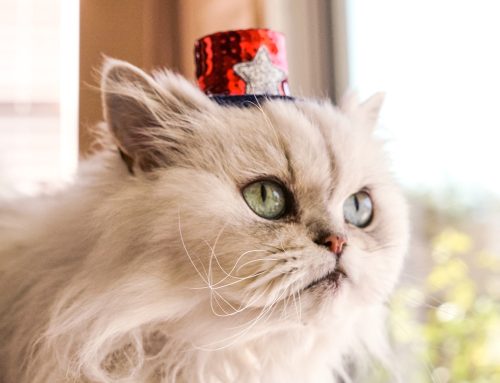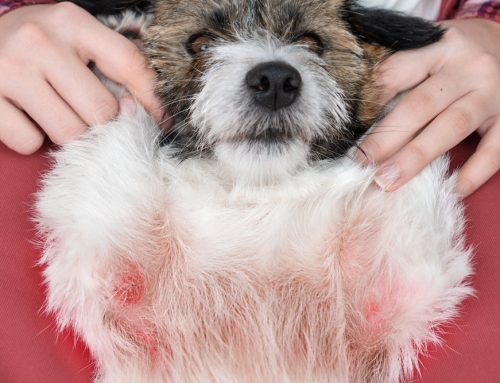July Fourth has an unmistakable soundtrack that includes booming fireworks, sizzling grills, and splashing water, each year making a year’s worth of summer memories. Unfortunately, these sounds—and their circumstances—can also underscore a potentially treacherous time for pets.
Don’t wait until the symphony—or cacophony—starts to prepare your pet for the July Fourth celebrations. Protect their health and safety—and create peace among the percussion—with these tips from Twin Maples Veterinary Hospital.
Boom!—Fireworks and pets
According to one survey a few years ago, more than 40 percent of dogs are extremely sensitive to sounds—especially loud, unpredictable noises like thunder and fireworks. Dogs with this condition (i.e., noise aversion) experience intense anxiety comparable to a human panic attack. However, many owners don’t realize that noise aversion is a medical condition, and do not seek treatment or mention the issue to their veterinarian. This puts dogs—and to a lesser extent, cats—at risk for life-threatening harm or injury, if they panic and try to escape or run away. As a result, July fifth is the busiest day of the year at most animal shelters, who take in many lost pets and help worried pet owners hopeful for a reunion.
Noise aversion often begins in early life, but can begin at any age, so do not assume your pet will be comfortable with fireworks. Instead, be proactive by:
- Ensuring your pet wears current identification — If your pet does escape, visible identification (e.g., collar or harness and tags) will increase their chances of a safe return. For the greatest peace of mind, have your pet microchipped and the chip registered.
- Speaking with your veterinarian — Noise-averse pets can be helped with anti-anxiety medication, sedatives, and calming supplements. Speak to your Twin Maples Veterinary Hospital veterinarian about what’s right for your pet.
- Exercising your pet before fireworks begin — Physical activity will relieve stress and help your pet rest during the evening.
- Staying indoors <>b>— Keep your pets indoor during fireworks, and never take them to a fireworks display.
- Creating a safe space — Give your pet a quiet, secure place where they can stay during the noisiest times. Include your pet’s essentials (e.g., bed, toys, litterbox, water) and play white noise to dull the sounds outside.
- Promoting calm — Use calming pheromones, which send chemical messages similar to hormones, to help your pet feel calm and secure. We recommend Adaptil for dogs and Feliway for cats.
Sizzle!—Cookout safety and pets
Meaty smells wafting in the air and the grill’s unmistakeable sizzle beckon to all—both two-legged and four-legged. But, no matter how eagerly your pet wants to join the neighborhood block party or backyard cookout, you must be their wingman and keep them safe from grill-related hazards, which include:
- Harmful foods — Pet-toxic foods, including onions, macadamia nuts, alcohol, and raisins, are abundant at summer gatherings, as well as many sugar-free products that contain xylitol. Undercooked meat can harbor unhealthy bacteria, while greasy or fatty meat trimmings and sugary or salty foods can trigger dangerous pancreatitis.
- Obstructions — Sometimes a pet’s eyes are bigger than their stomach—in this case their intestines. Pets may suffer from an intestinal obstruction and require emergency surgery after eating raw or cooked bones, corn cobs, food wrappers and, in extreme cases, utensils.
- Burns — Counter-surfing dogs and cats trying to snag food from the grill can suffer serious burns. Keep your pet leashed or indoors while you are grilling, or put the grill behind a barrier to protect nosy noses and greedy paws.
Buzz!—Parasite prevention for pets
Summer is the peak season for pesky parasites, including mosquitoes, fleas, and ticks. And, while protecting pets who venture outdoors may seem obvious, you must also protect your indoor-only cats and dogs. Heartworm disease-carrying mosquitoes can slip inside through a torn window screen or open door, while ticks and fleas can hitch a ride inside on clothing, shoes, or other pets.
For the best parasitic disease defense, ensure your pet receives year-round heartworm, flea, and tick preventives from Twin Maples Veterinary Hospital, as well as an annual heartworm test. Also, remove standing water, clear brush and leafy debris, and trim weeds and grass to limit backyard pests.
Splash!—Water safety for pets

Many Americans spend July Fourth on or near the water—a decision thoroughly endorsed by water-loving dogs. If your holiday will include floating, boating, beaches, or river banks, practice the following precautions:
- Outfit your pet with a life jacket — All dogs—including strong swimmers—should wear a life jacket, which can save their life if they become tired, unconscious, or panic in the water.
- Take frequent breaks — Water activities can quickly exhaust a dog and make them vulnerable to injury, strong currents, or drowning. Take breaks often, and provide fresh water and shade.
- Watch for heat stress — Overheated pets can suffer from heatstroke, which can quickly become a life-threatening emergency.
- Avoid stagnant or algae-filled water — Contaminated water can contain giardia- or leptospirosis-causing bacteria, and contacting blue-green algae can cause fatal toxicosis.
- Supervise your pet — Pets should never be left unattended near water.
The Twin Maples Veterinary Hospital wishes you and your pet a safe and enjoyable July Fourth. If you’d like to discuss your pet’s noise aversion, or refill your pet’s anti-anxiety medication, please contact us as soon as possible, to avoid the holiday rush.









Leave A Comment